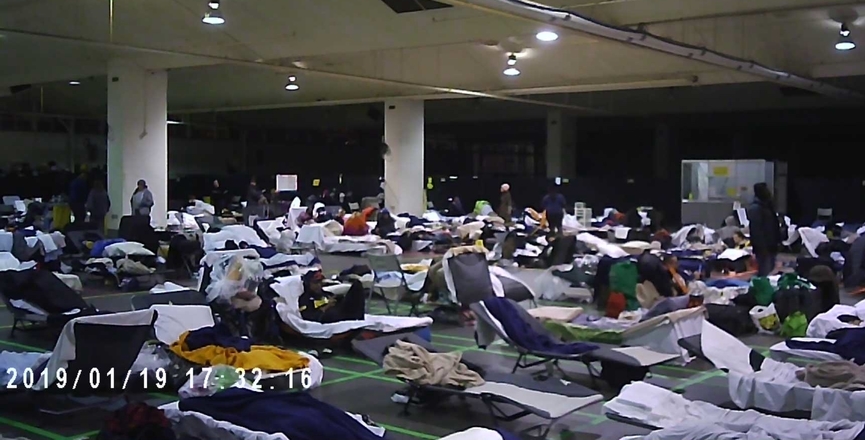In the International Year of the Nurse and Midwife I have to ask once again “What would Florence Nightingale say about this new coronavirus?”
In 2003, street nurse Kathy Hardill and I penned an article asking a similar question on another coronavirus, “What would Florence say about SARS?”
“Imagine for example, that you are homeless. If you are staying in a homeless shelter with one or two toilets and sinks for sixty people, which may or may not have soap or towels, you will not be able to wash your hands very often. If you are living in a crowded basement shelter with no windows, air circulation will be next to non-existent. You will likely sleep less than a metre from your neighbour. There may be anywhere between 20-100 people sleeping in the same room. Nearly everyone has a cough — close to 40 per cent have already been exposed to tuberculosis. Several days from now you may be forced to seek new shelter. In the morning you will likely enter a nearby drop-in centre to obtain food, or to see a nurse, or to use a phone or washroom. If you should require quarantine, where would you go?”
We pointed out that Nightingale said, “Bad sanitary, bad architectural, and bad administrative arrangements often make it impossible to nurse.“
Seventeen years after SARS, Nightingale’s words hold true. For years, this blog has chronicled the local Toronto and national emergency of homelessness that impacts health and life: overcrowded shelters, new 24-hour respite sites, warming centres and a city shelter and public health administration that ignore both the evidence and frontline health workers’ expertise.
In 2003 I was invited to give evidence, surprisingly in private, at the SARS inquiry, held by Justice Archie Campbell. Here are some excerpts to provide food for thought as the world watches the spread of a new coronavirus.
- “Individuals that reside in congregate living situations (prisons, jails, detoxes, treatment centres, shelters, etc.) frequently face an increased risk of infection or communicable diseases. Despite a significant body of literature that documents the increased risk homeless individuals face, provincial directives were not developed to address SARS.
- For homeless individuals, the added variables of forced nightly movement (especially the reliance on the volunteer, faith based Out of the Cold program), overcrowded shelters, reduced access to health care, compromised immune systems place them at a heightened risk of SARS exposure.
- Public health authorities initially advised me that ‘home’ quarantine plans for a homeless person would be in a shelter, regardless of the size or living conditions in the facility. Significant advocacy occurred and as a result, distinct, single room quarantine locations were established in three municipalities. However, this quarantine mechanism did not work. In one case, a man left because he was hungry–no meals were provided to him.
- There was insufficient guidance to shelters and drop-in centres regarding screening protocols and infection control.
- There were no directives for street nurses, community mental health or outreach workers who provide care in shelters, drop-ins, vans, and on the street and in parks.
- Public Health tuberculosis nurses were deployed to SARS work despite a known crisis in tuberculosis in the homeless population.
- Community health workers, with experience in homelessness, made extraordinary and concerted efforts, to dialogue and collaborate with public health for the purpose of ameliorating the public health response to SARS. There was a paucity of public health leadership with regards to the homeless population and certainly very poor communication updates on the rapidly changing protocols.
Ironically, it was evident that strategic alliances to fight SARS were acknowledged in the area of tourism and business rather than in the field of community and population health.
It is with regret and alarm that I suggest to you that homeless individuals, and ultimately the population at large, remain at great risk should a similar health catastrophe resurface.”
Today, I watch in horror as shelters remain at 100 per cent capacity and overflow shelters called “respite sites” and Out of the Cold programs operate with weaker standards that put homeless people, volunteers and workers at risk.
Another reason we plead for Mayor John Tory and Premier Doug Ford to declare a homelessness emergency. The sector needs a massive infusion of funds to realize the right to safe shelter.
Sign the Shelter and Housing Justice Network petition here (anyone can sign).
Cathy Crowe is a street nurse, author and filmmaker who works nationally and locally on health and social justice issues.
Image: Provided by Cathy Crowe



